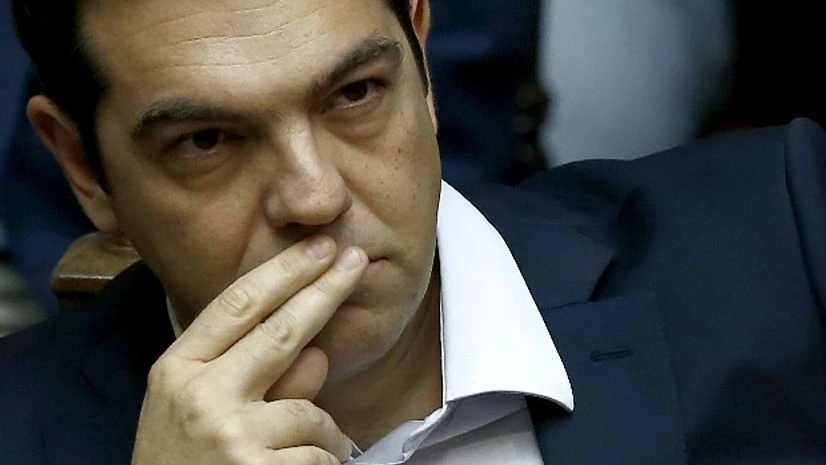Greece was to submit a detailed bailout request to its EU partners in the eurozone today in a last-ditch effort to save its collapsing economy and its membership in the European single currency.
Prime Minister Alexis Tsipras vowed yesterday that his country's new plan asking for billions in euros would contain "concrete proposals, credible reforms, for a fair and viable solution".
Read more from our special coverage on "GREECE CRISIS"
But other eurozone nations, led by Germany, are sceptical about Greece meeting austerity conditions attached to the loans, especially after Greeks in a referendum last weekend backed Tsipras's past rejection of tough terms on its last bailout.
"This is really and truly the final wake-up call for Greece and for us, our last chance," said EU President Donald Tusk yesterday.
Failure "may lead to the bankruptcy of Greece" and geopolitical problems for Europe, he said.
Leaders of the 28-nation European Union, including the 19 states that share the euro, are to hold a summit on Sunday billed as the "final deadline" for a deal.
While Europe has no provision under its treaties to force a country out of what is meant to be an "irreversible" monetary union, some legal advisers say it could be made to happen by kicking an errant state out of the European Union.
A demonstration of Greeks calling for their country to remain in Europe was to take place in central Athens late today.
Greece, which has until midnight Brussels time to file its reform proposals for what would be its third bailout in five years, is teetering on the precipice of financial collapse.
Banks are closed and ATMs, whose daily withdrawal limit is capped at 60 euros ($67) per card holder, are expected to start to run dry any day now.
The capital controls also ban overseas money transfers, isolating Greece and its population of 11 million from foreign suppliers of everything from food to medicine.
Authorities have extended the closure of the banks and the Athens stock market to next Monday.
The number of last-minute tourist bookings to Greece - usually a European summer hotspot for its many sunbleached islands - has plunged 30 per cent over the past two weeks because of the uncertainty.
International markets, though, appear relatively sanguine about the possibility of contagion from a "Grexit", or Greek exit from the eurozone, despite an initial dip after the referendum.

)
